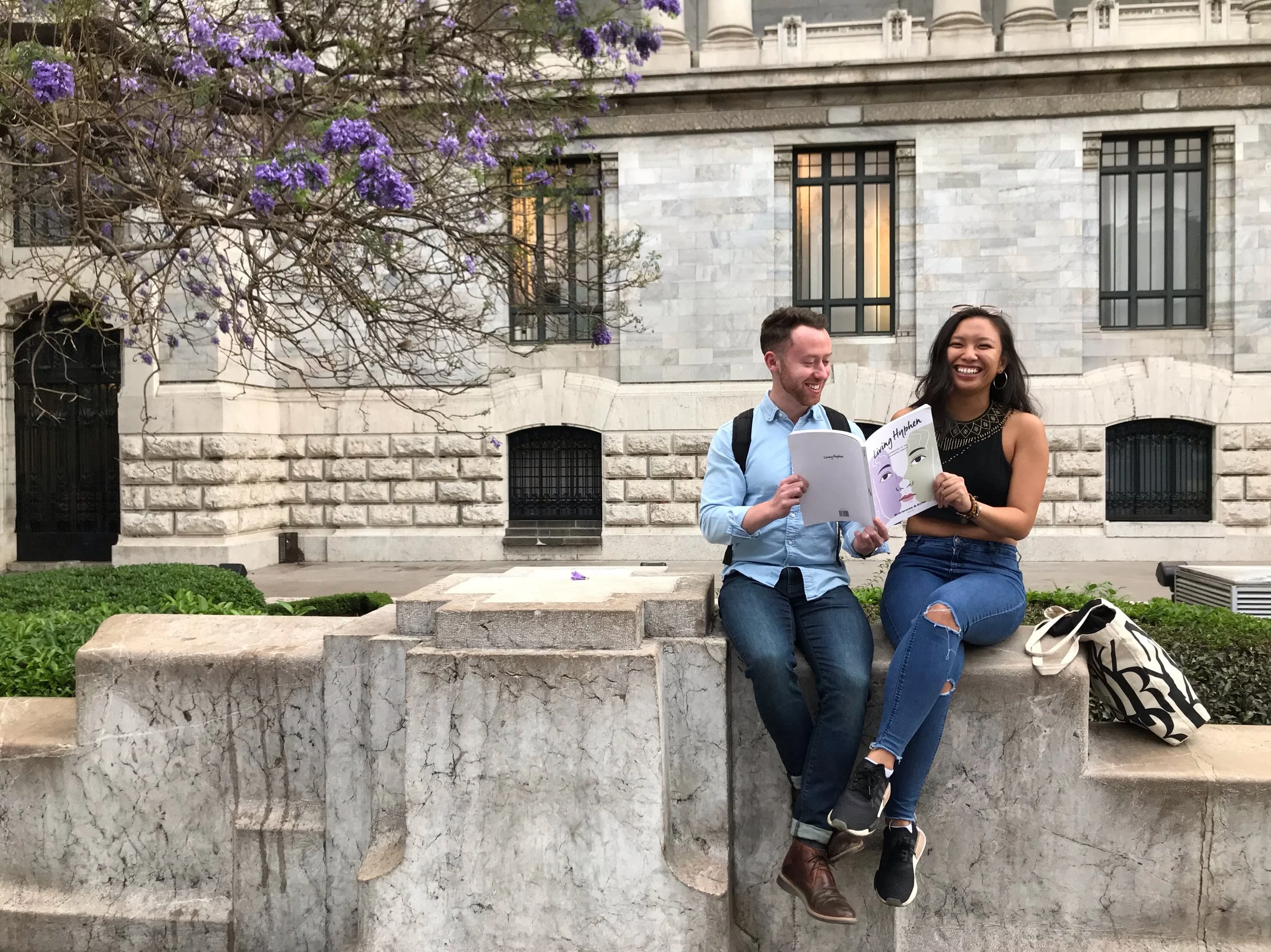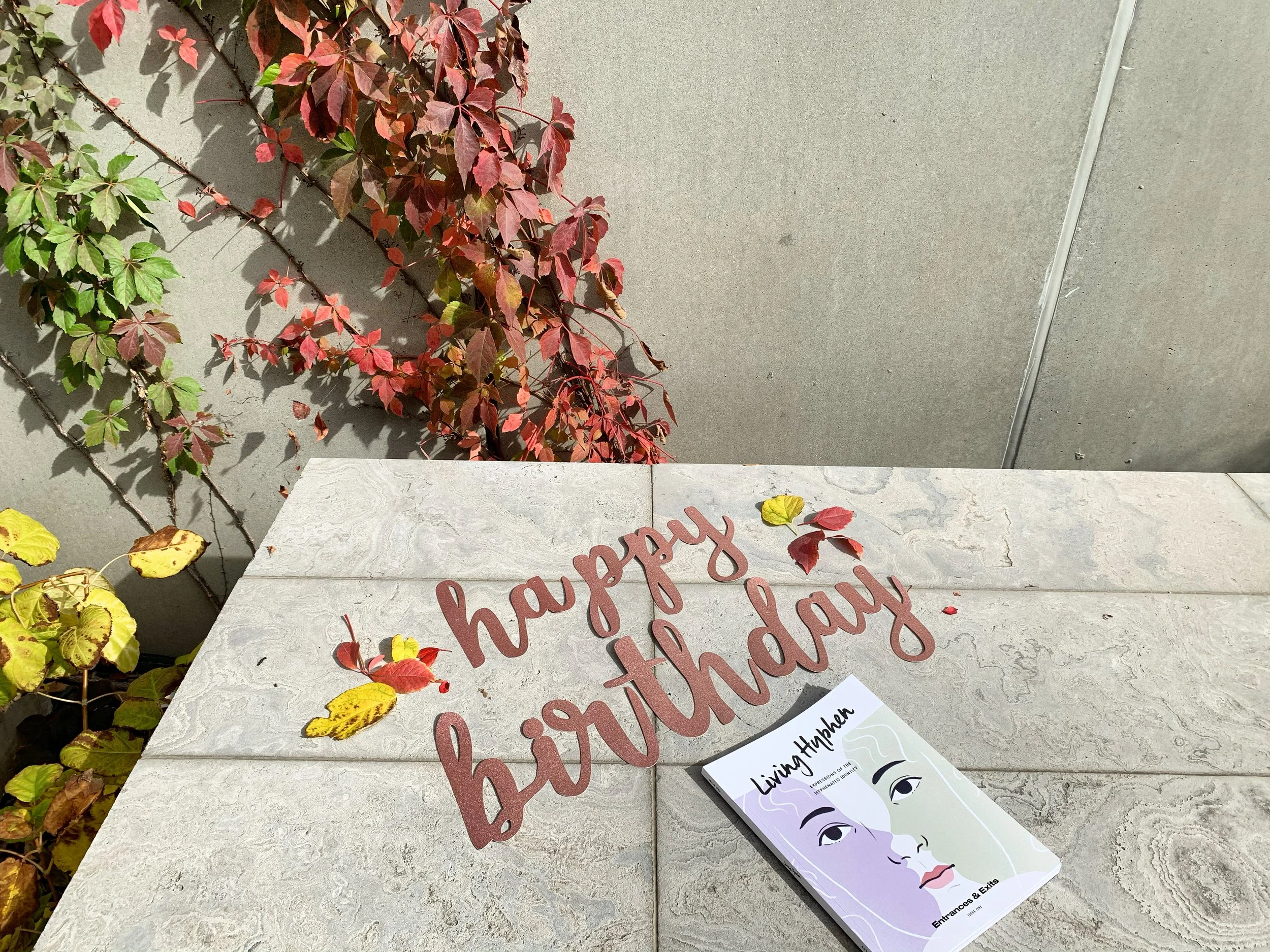In almost all of the writing workshops that I facilitate through Living Hyphen, there is always one prompt that I love to guide writers through. I kick off by asking everyone to create a list of words or short phrases from their native tongue, or their parents’ or ancestors’ native tongue. These can be words that they love dearly, words that they can recall hearing often, or words that they might not even know the translation of. I ask them to list any and all the words they can think of in under a minute. And then we take the next ten or so minutes to write a story using some of those words.
We then take turns reading out loud our stories to one another. Without fail, this exercise is always such a deeply moving experience. To hear someone speak out loud their stories with words in their native tongue sprinkled throughout is a precious gift. Oftentimes, we don’t really know the specific translations of the words spoken. But you can always feel the spirit of the story and the force of the intimacy of what is being shared.
As Living Hyphen’s Editor-in-Chief and writing workshop facilitator, I am acutely aware of just how significant language is. Language affects not just how we perceive the world but also how we move through it.
I am also acutely aware of just how limiting and limited it is. More specifically, I am acutely aware of just how limiting and limited the English language is.
According to the 2016 census, we live in a country where 7.5 million people — 21.9% of the total population — are foreign-born individuals who immigrated to what we now know as Canada. Many of these people may not speak English as their first language.





